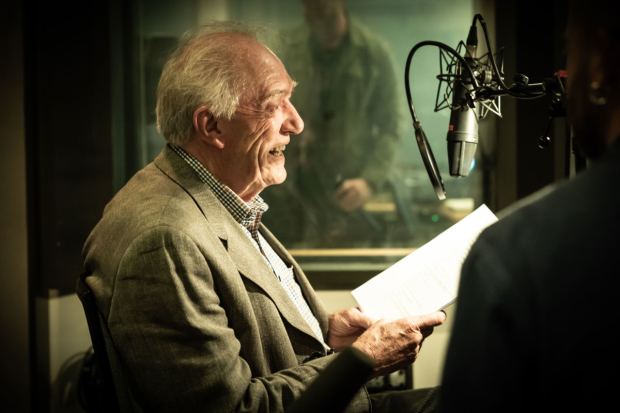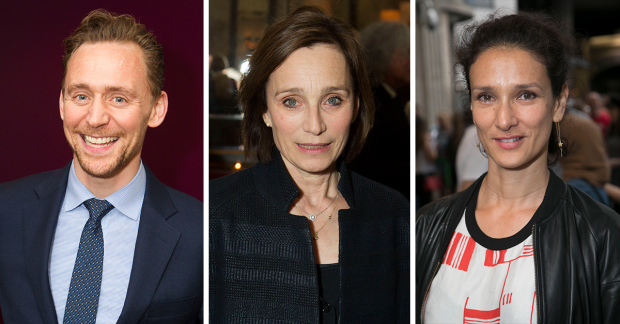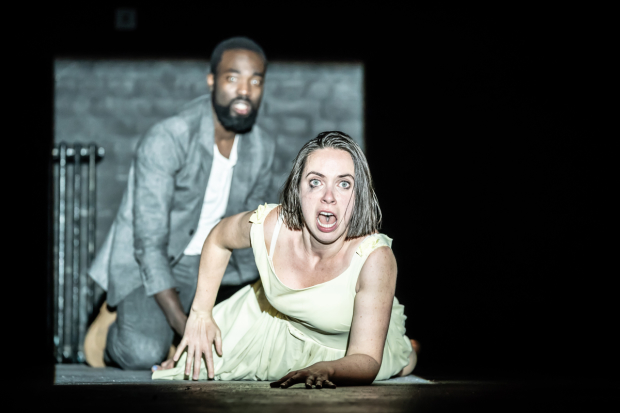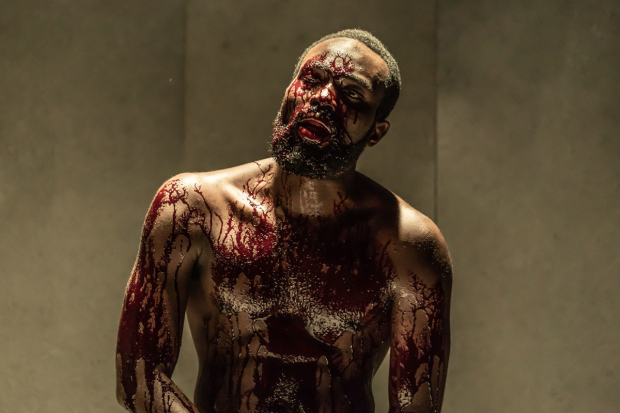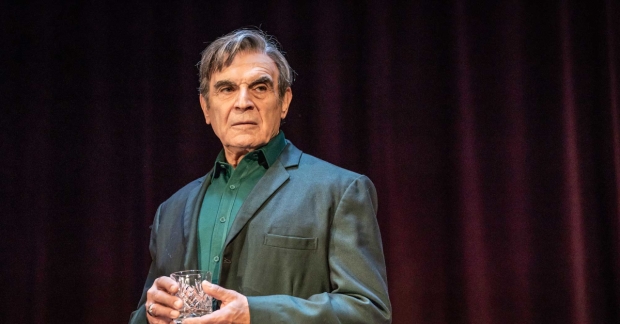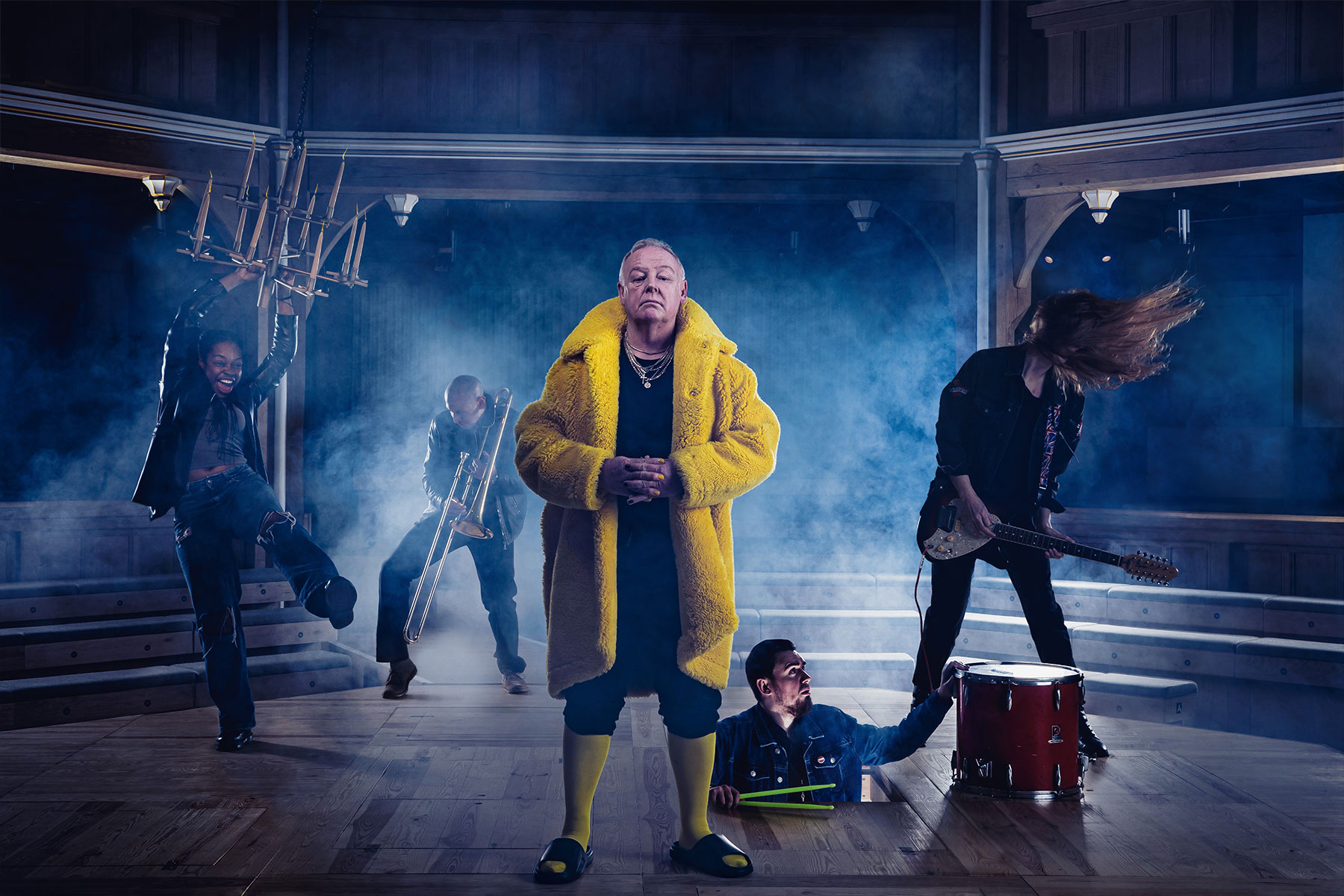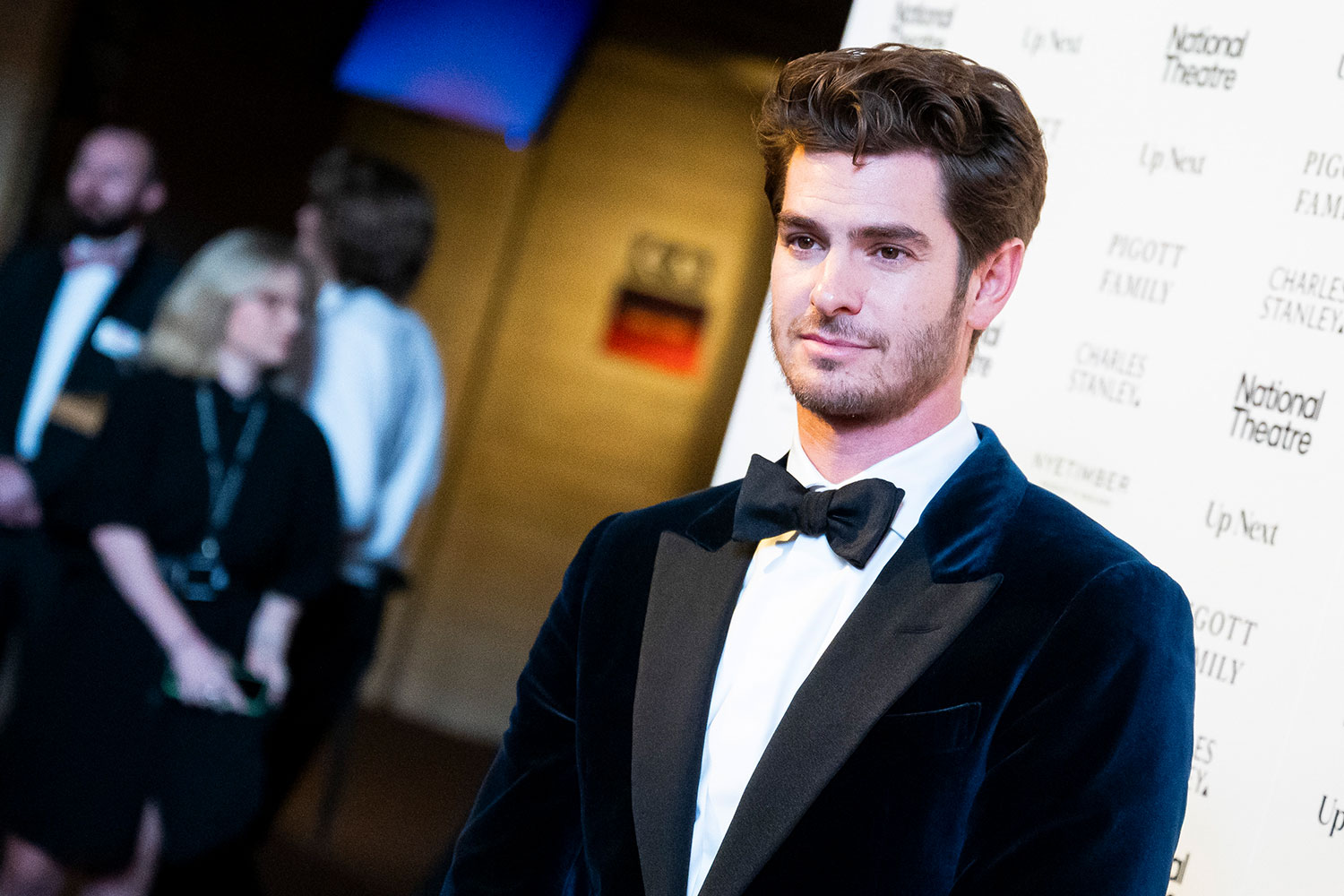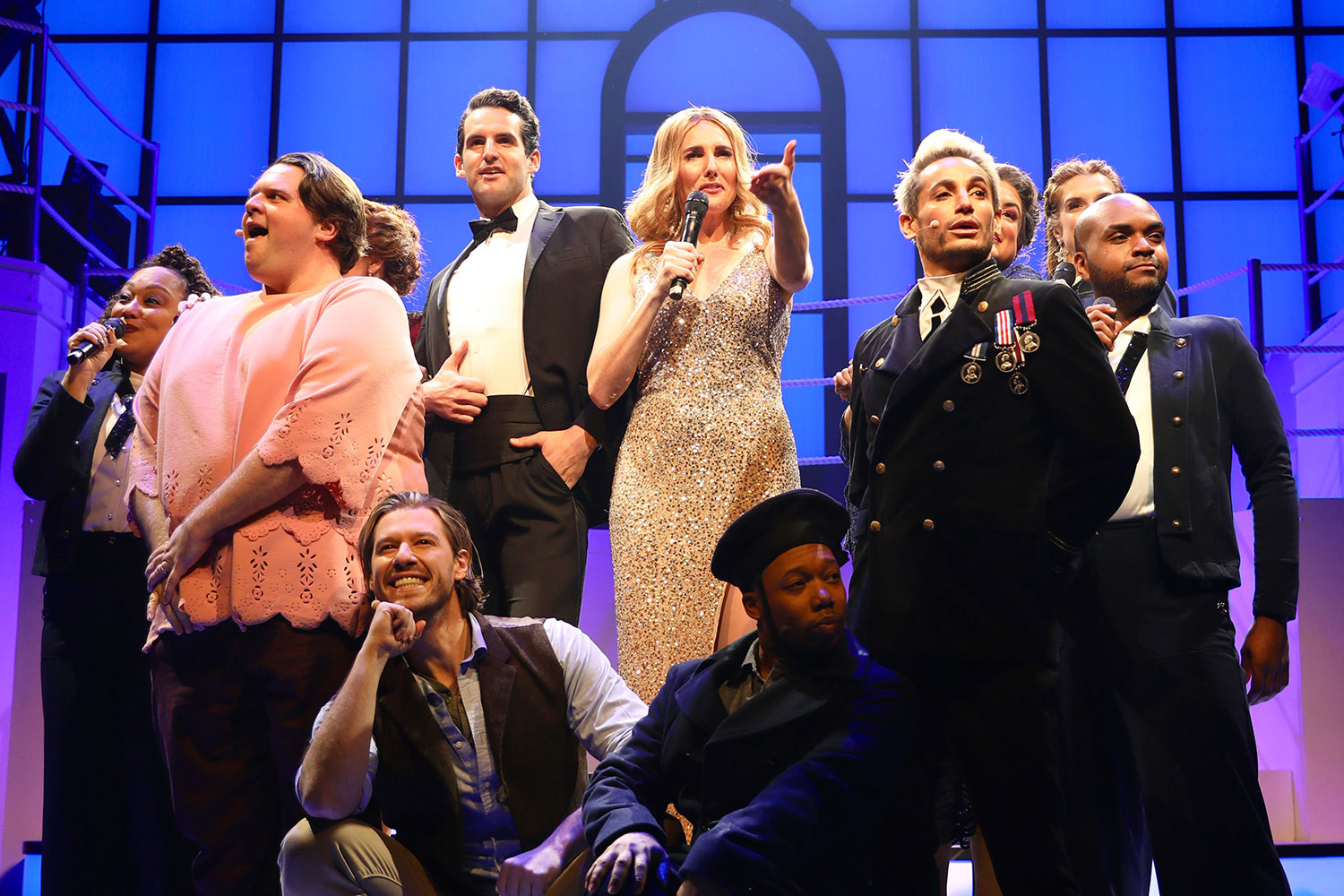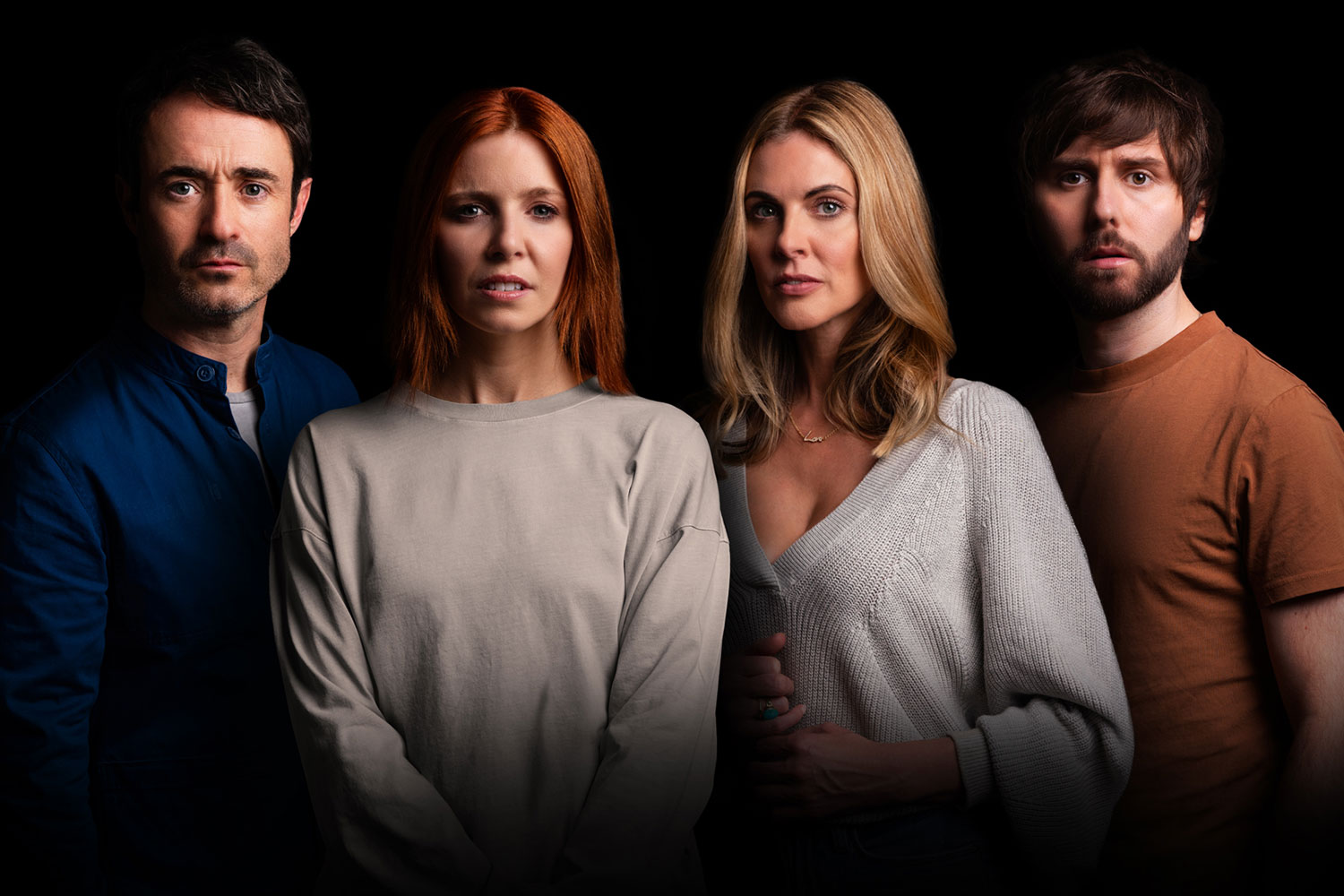Review: Pinter Three Landscape/A Kind of Alaska (Harold Pinter Theatre)
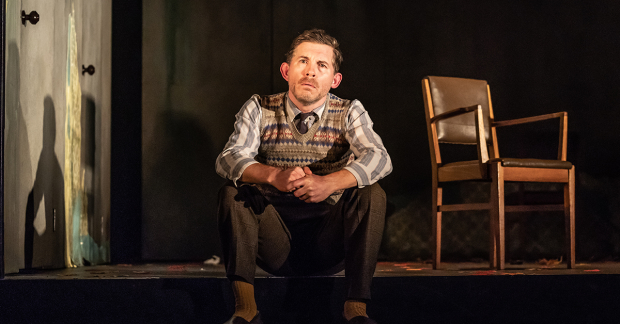
© Marc Brenner
One of the pleasures of Jamie Lloyd's ongoing season of Pinter's short works is seeing fine actors illuminate the plays. In Pinter Three, a mixed bill of 11 plays and sketches, Tamsin Greig and Lee Evans reveal themselves as perfect Pinter protagonists.
Both are natural comics, with a killer instinct for the lift and landing of a word and a line. Both bring that awareness of the precision and panache of Pinter's language to portrayals that reveal the writer's other great quality – his obsession with loneliness and the lingering mysteries of existence.
Greig has the more substantial roles. She opens the programme in Landscape, from 1969, a play in which a woman sits reminiscing about meeting a man on a beach, while a man (Keith Allen) punctuates her reminiscence with an angry tirade about daily life.
It's not just Greig's Irish lilt that makes the play reminiscent of Samuel Beckett; its themes of memory, its mood of loss, its sense of disconnect between a female and male protagonist, each trapped in their own world, also hints at the kinship between two men who developed a new kind of theatre.
Speaking into a microphone, Greig brings a rapt stillness, a sense of half-wondering inquisition to the words. In A Kind of Alaska, from 1982, the piece based on Oliver Sacks' Awakenings, she finds different colours and tones. She plays Deborah, emerging from a 29-year sleep, with drowsy eyes and a mixture of tantalised curiosity and frightened confusion as her doctor Hornby (Allen again) and her sister Pauline (Meera Syal) explain what has happened.
Pinter, characteristically, is less interested in the drama of the awakening than in the unknowability of where the woman has been. "I've been dancing in very narrow spaces," she says. Lloyd, who directs this entire programme, keeps the collisions of knowledge finely poised, but only Greig's child-woman really finds the play's haunting strangeness.
Evans, emerges from self-imposed retirement, to remind us exactly how much we have missed his vivid gifts and his perfect timing. He's wonderfully funny in That's All (1959) a fragment of nonsense which has three bearded men in blonde wigs (Evans, Allen and Tom Edden) talking about another woman. Evans' sidelong looks of surprise as he glances at the entirely silent Edden are worth the price of entry; his disgruntled shop steward in another tiny sketch from the same year, Trouble in the Works, is a masterpiece of ticks and twitches. In That's Your Trouble (opposite an increasingly enraged Edden) he squints at the world through a puzzled, obtuse stubbornness.
His most substantial role is in Monologue, from 1973, a conversation with a chair that stands for an imaginary friend and love rival. In this he uncovers all the pathos as well as the humour, leaning into the words and the sadness of disappointment.
Lloyd links the sketches in this bill, using music (which is over-emphatic) and the movement of Soutra Gilmour's cube of a set, full of old-fashioned furniture and Jon Clark's gentle light, to bring a unity to the disparate pieces.
Of the rest, which also feature Syal as an irritating evangelist in God's District (1997), it's Tom Edden's performance in Girls (1995), a brilliantly controlled, finger wagging tour de force which takes the phrase "Girls like to be spanked" in all kinds of unexpected directions that stands out.
You can see why actors love Pinter. He gives them such a chance to shine.




